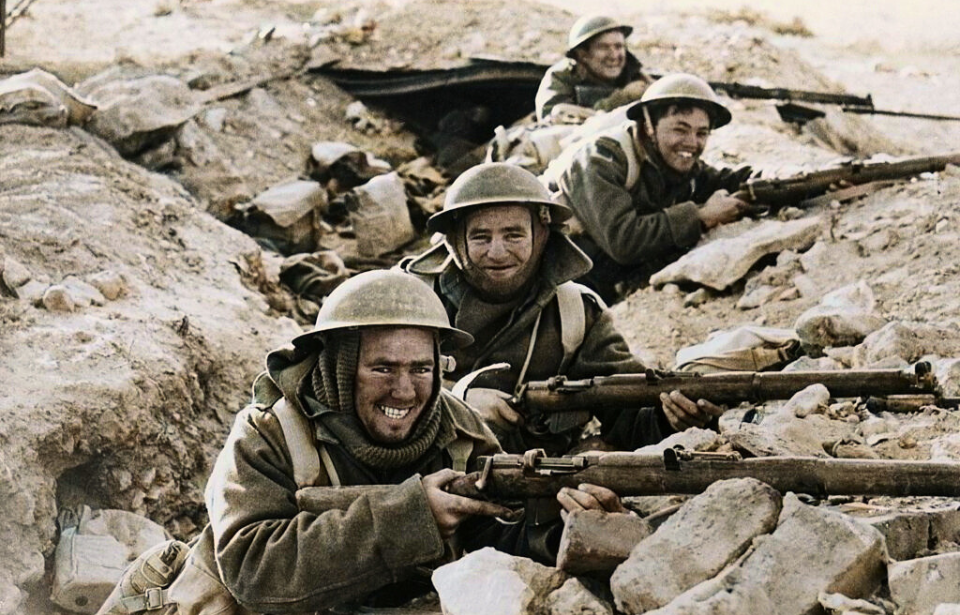The English language is in a state of constant evolution, with new words being added frequently. This fluidity of language isn’t something new; it has historically been molded by terms and expressions from various eras. Slang that originated in the trenches of World War I has had a considerable impact on our contemporary vocabulary, though not every phrase from that time remains widely used today.
Napoo
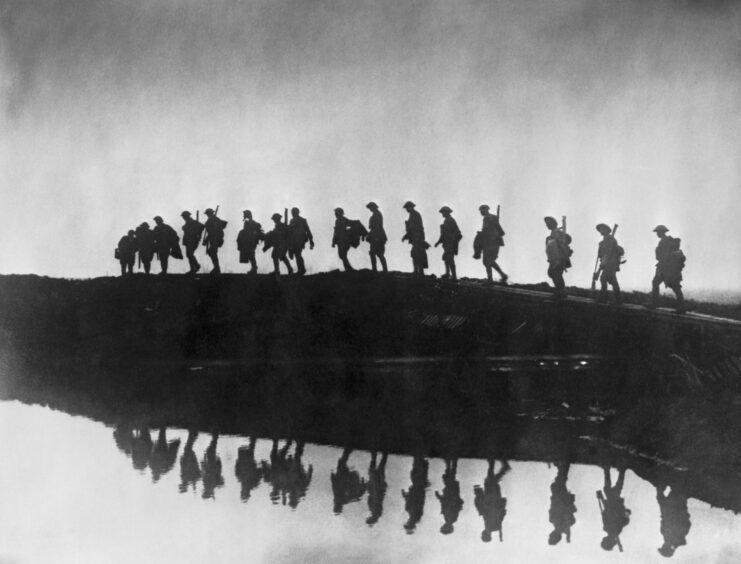
Another expression that never made its way into modern heavy English use is “napoo.”
This World War I slang term has roots in the French language. It comes from the French phrase “il n’y a plus,” which translates to “there is no more.” English-speaking soldiers who served with the French in the trenches adopted and altered the phrase for easier pronunciation, leading to “napoo.”
It was often used to describe something that was finished, destroyed, or dead.
Blimp
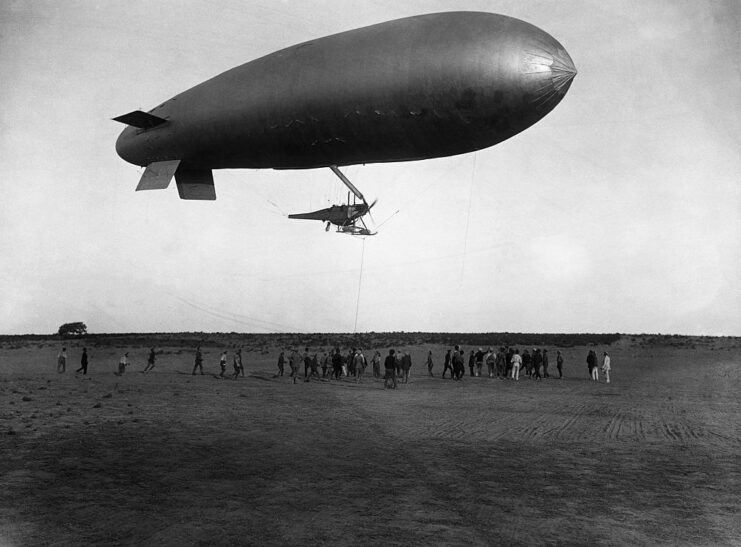
“Blimp,” which is used to describe modern airships, first appeared during World War I. However, the exact origin of the name remains unclear.
One popular theory connects the term to the airships’ classification. It suggests that “limp airships” referred to these non-rigid vessels that could expand and contract. As such, they were classified in as Category B: Limp. According to this theory, “blimp” would be a blend of the category designation and its descriptive term.
Another, perhaps more plausible theory, is that the name is onomatopoeic, mimicking the sound the airship makes when fully inflated.
Skive
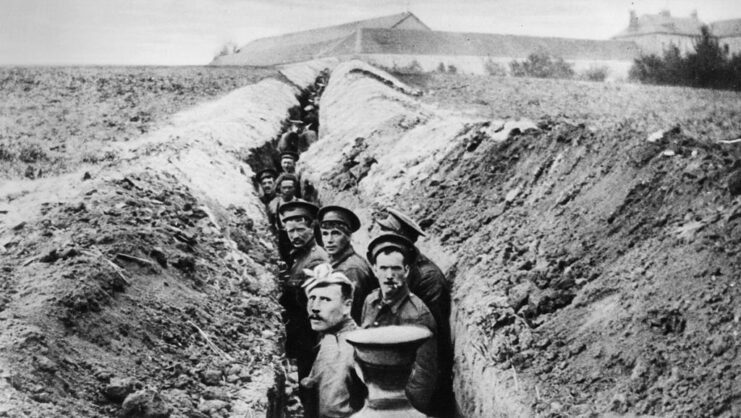
“Skive” is thought to originate from an anglicized version of a French word. The exact origins are pretty vague, but it first appeared as military slang during World War I. Experts suggest it might be derived from the French word “esquiver,” meaning “to avoid” or “escape.” The term “skive” was used to refer to avoiding a task or duty.
If it did come from the French term, it would be one of the most notable French-derived slang words to make its way into English.
Blighty
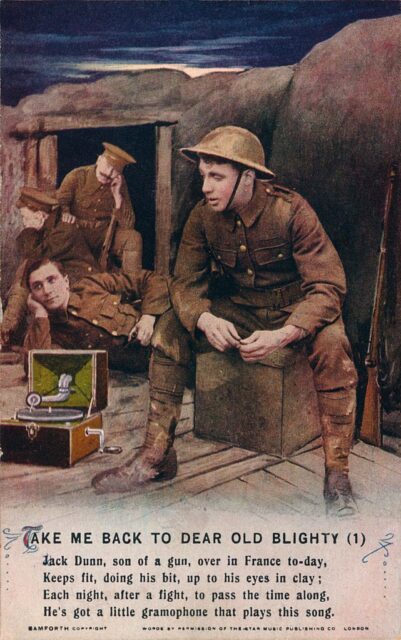
During World War I, British soldiers adopted a term with deep meaning: “Blighty.” Now a casual nickname for Great Britain, Blighty’s roots lie in Urdu. “Vilayat” and “vilayati” – meaning “settled land” and “foreign,” respectively – were the original words.
A regional twist on the Urdu term, “bilayati,” found its way into the British military lexicon by the 1800s. But Blighty wasn’t just a place – it also described a particular kind of injury. Serious enough for a trip home, but not life-threatening, a Blighty wound meant a welcome return to Blighty itself.
In a flap
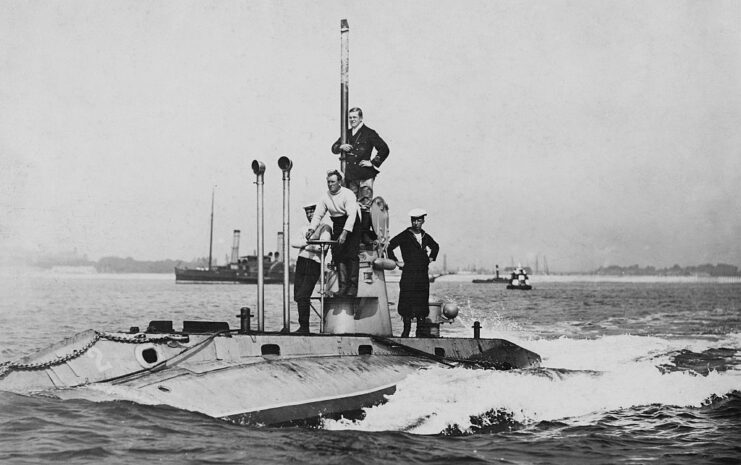
If you’re feeling anxious about something, you may find yourself “in a flap.” This slang expression dates back to 1916, at the peak of World War I, and was frequently used by naval personnel. It’s believed to stem from the restless flapping of birds.
The term also led to the creation of the word “unflappable,” which emerged much later in the 1950s and signifies being “unfazed.”
No bon
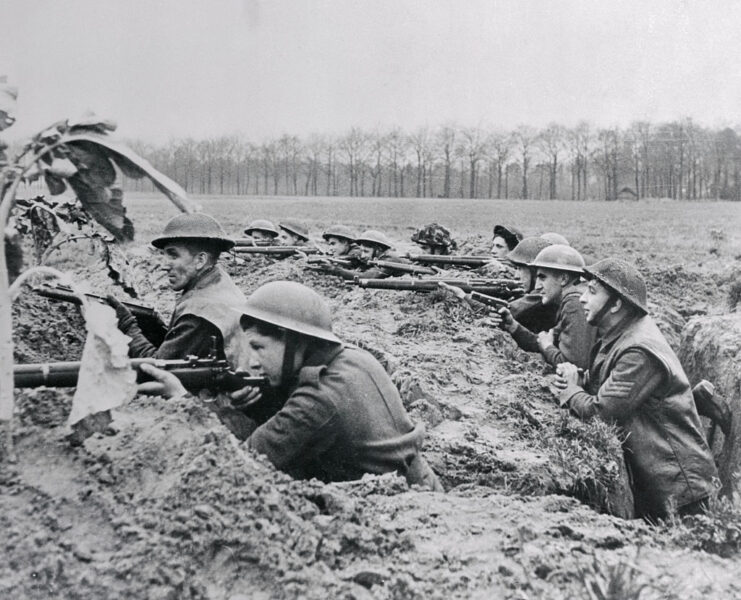
A slang expression that originated in the trenches of World War I but didn’t last is “no bon.” This term, a combination of English and French, was commonly employed by British soldiers—where “no” is English and “bon” is French. It translates to “no good,” as “bon” means “good” in French.
Over the top
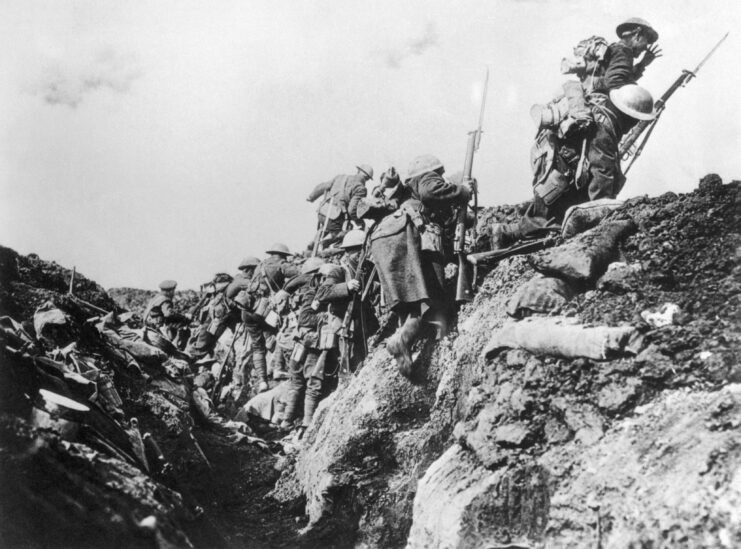
This World War I-era slang expression has seen a resurgence in recent years, but did die out post-conflict.
Today, it’s used to describe something that is excessive or unnecessary, which is quite far from its original meaning. During the First World War, the expression referred to an attack from the trenches, which required soldiers to climb over the sandbags or go over the top of the trench.
New! Want to become a trivia master? Sign up for our War History Fact of the Day newsletter!
At the time, the term was also used to describe the beginning of a dangerous venture that had a small chance of survival.
